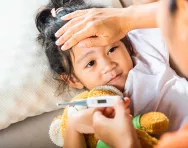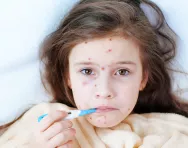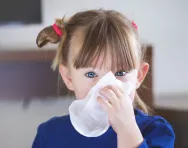TheSchoolRun.com closure date
As we informed you a few months ago, TheSchoolRun has had to make the difficult decision to close due to financial pressures and the company has now ceased trading. We had hoped to keep our content available through a partnership with another educational provider, but this provider has since withdrawn from the agreement.
As a result, we now have to permanently close TheSchoolRun.com. However, to give subscribers time to download any content they’d like to keep, we will keep the website open until 31st July 2025. After this date, the site will be taken down and there will be no further access to any resources. We strongly encourage you to download and save any resources you think you may want to use in the future.
In particular, we suggest downloading:
- Learning packs
- All the worksheets from the 11+ programme, if you are following this with your child
- Complete Learning Journey programmes (the packs below include all 40 worksheets for each programme)
You should already have received 16 primary school eBooks (worth £108.84) to download and keep. If you haven’t received these, please contact us at [email protected] before 31st July 2025, and we will send them to you.
We are very sorry that there is no way to continue offering access to resources and sincerely apologise for the inconvenience caused.
How to protect your family from back-to-school bugs

Strengthening immune systems
To help protect your child and your family against back-to-school sickness, it’s important to support strong immune systems.
Having a healthy diet plays a vital role in supporting the development and upkeep of your immune system. This means having at least five servings of fruit or vegetables a day that take up half of every plate!
Exercise is also important, and your little one should aim for about an hour of fun, heart-pumping activities each day.
Reducing exposure to stress can boost your immune system and lower the likelihood of falling ill. Try to find ways to unwind together, whether it's through a cozy story time, a game night, colouring or puzzling, or listening to some soothing music.
Practising good hygiene
It can be hard for children to understand what germs are, and the importance of practicing a proper hygiene regime to prevent them from spreading.
Germs can spread through the air when someone coughs, sneezes, or even sings!
They can settle on surfaces, such as toys or door handles, and then be transferred to individuals who also touch these surfaces.
Encourage children to wash their hands frequently with warm, soapy water for at least 20 seconds, especially:
- after coughing or sneezing
- before and after eating food
- after going to the toilet
- after playing at the park
- when your hands have got grubby
- after touching pets or animals
- after playing with shared toys
Recognising symptoms
Knowing symptoms of illnesses such as flu, scarlet fever, measles, and mumps can help you to catch them early and prevent illnesses spreading. Once you know what your child may be suffering from, you can take safety measures to reduce the chance of it spreading to family and classmates.
If your child is feeling poorly, speak to a health professional for guidance.
Once their illness is confirmed, follow these guidelines:
- Common cold or minor cough: Keep them home if they have a fever.
- High temperature: Keep them home until the fever subsides.
- Diarrhoea/vomiting: Stay home until they’ve not been sick or had diarrhoea for at least 48 hours.
- Chickenpox: Return to school/nursery after all spots crust over (usually about 5 days after the spots appear).
- Cold sores: Send them to school, but encourage them not to touch the blister, kiss anyone, or share things like cups and towels.
- Conjunctivitis: Seek treatment from a pharmacist. Your child can attend school/nursery but should be encouraged not to rub their eyes and wash their hands regularly.
- Ear Infection: Stay home until they’re feeling better or their temperature goes away.
- Impetigo: Return to school when all the sores have crusted over and healed, or for 48 hours after they start antibiotic treatment. Encourage regular hand washing and not to share items.
- Measles: Stay home for at least four days from rash onset and avoid close contact with babies, anyone pregnant, or those with a weakened immune system.
- Scarlet fever: Children need treatment with antibiotics from a GP otherwise they'll be infectious for two to three weeks. Your child can go back to school 24 hours after starting antibiotics.
- Hand, foot and mouth disease: Attend if feeling well but encourage them to throw away used tissues straight away and wash their hands regularly.
- Hay fever: Send them to school. Their symptoms may improve if they follow some basic advice, like applying petroleum jelly around their nostrils to trap pollen. Tell them to stay indoors and keep windows and doors shut as much as possible. If driving to school, use a pollen filter in your car. When they get home, encourage them to shower and change clothes to wash pollen off. Use a pollen filter in your vacuum cleaner.
Encouraging good habits
- Remind your child not to touch their eyes, mouth, and nose. This can help reduce the transfer of germs to areas that easily enter the body.
- When they need to cough or sneeze, show them how to cover their mouth with their elbow or a tissue. Then, toss that tissue away and give those hands a good wash. If they can't find a tissue, using their armpit or elbow works too!
- Always encourage children to speak with a parent, caregiver, or teacher if they feel unwell. Sharing stuff like rashes, headaches, tummy aches, or if they're feeling too hot or cold helps everyone jump into action faster.
Sometimes, a little rest is all they need to bounce back, but if they do need some medicine, that's okay too. And if they do stay home for a bit, it's not just for them – it helps keep others healthy as well.
By staying tuned in to how they're feeling and dealing with any issues, we can keep them feeling great, avoid missing too much school, and make sure nobody else gets sick in the family.
And remember, if you're ever unsure, it's always a good idea to chat with a healthcare professional.






